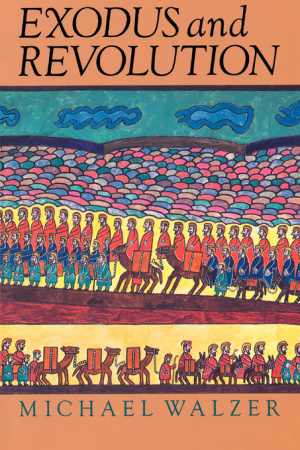'פָּנִים
בְּפָנִים דִּבֶּר ה' עִמָּכֶם
בָּהָר מִתּוֹךְ הָאש'. (דברים ה ד)
“Face to face did God speak
with you on the mountain, from the midst of the fire” (Deut. 5:4)
1.
Jews usually flee whenever God is the topic. Religious or secular, it’s best
not to speak too much about God. But in an election year, when every other
televised address ends with “God Bless America”, and with the looming question
of whether God has been an overall positive idea in history, the way we talk
about God is a very real and potent topic. This week’s Parsha, Yitro,
marks the foundational moment of God’s revelation to the Israelites: “I am the
Lord your God” rings the voice from Sinai, an apt opportunity to discuss what that vision continues to mean to us today.
 Feminist theoreticians
have done a good job showing why we cannot leave the field of God vacant. As Carol Christ
writes:
Feminist theoreticians
have done a good job showing why we cannot leave the field of God vacant. As Carol Christ
writes:
Because
Religion has such a compelling hold on the deep psyches of so many people,
feminists cannot afford to leave it in the hands of the fathers. Even people
who no longer "believe in God" or participate in the institutional
structure of patriarchal religion still may not be free of the power of the
symbolism of God the Father.... (Carol Christ, Why Women Need
the Goddess)
Or in the words of Mary
Daly:
If God in
"His" heaven is a father ruling “His” people, then it is the nature
of things and according to divine plan and the order of the universe that
society be male dominated. (Mary Daly, Beyond
God the Father )
For agents of change, the discourse of God is a powerful tool to change assumptions about power and structure. Changing the language we use to
talk about God is a way to change how people conceive of the world, whatever
our field of activism is.
2.
This political perspective seems to make sense especially if you assume
that “He” is simply a projection of human needs, not an actual Existence. But
for the Rabbis of the Talmud the idea of using versatile language about God is
not about what we project onto God, but rather emanates from the fact that God reveals
himself (herself!) in different ways based on our human needs. A midrash about
the Revelation at Sinai exposes this radical idea:
Rabbi Hiyya bar Abba said:
The fact is that God appeared to them in a guise appropriate to each and every
place and time: At the Red Sea he appeared to them as a mighty man
waging wars, At Sinai he appeared to them as a school teacher, as
one who stands upright in awe when teaching Torah; In the days of Daniel,
He appeared to them as an elder teaching Torah, for the Torah is at its
best when it comes from the mouths of old men; In the days of Solomon He
appeared to them as a young man in keeping with the youthful spirit of
Solomon's generation – "His aspect is like Lebanon, young as the
cedars" (Song of Songs 5:15).
The
Holy One said to Israel: Come to no false conclusions because you see Me in
many guises, For I am He who was with you at the Rea Sea, And I am He who is
with you at Sinai: "I am the Lord your God".
א"ר חייא
ברבא: לפי כל עסק ועסק וכל דבר ודבר היה נראה להם: נראה להם בים כגיבור עשה
מלחמותיהם של ישראל; נראה בסיני כסופר שהוא מלמד תורה ועומד ביראה; נראה להם בימי
דניאל כזקן מלמד תורה שכך נאה לתורה להיות יוצאה מפי זקנים; נראה להם בחור בימי
שלמה לפי מעשיהם של דור מראהו כלבנון בחור כארזים (שה"ש ה טו); אמר להן הקב"ה: לא בשביל שאתם רואים אותי בדמוייות הרבה
אלא אני הוא שבים, אני הוא שבסיני - "אנכי י"י אלהיך"
R. Hiyya’s God is a dynamic God, acutely aware of
his audience, striving to be continually relevant, a master educator encountering
his pupils where they are at. This midrash would suggest that just as God
reveals herself in different ways based on our needs, so we must find new paths
and metaphors for God that are based on our authentic experience of her. A
dynamic and ever relevant God, I shall be what I shall be, as God calls
himself, is a crucial way we continue the conversation with God over the
generations.
3.
 |
| Zelda |
I Am a Dead Bird
I am a dead bird,
One bird that has died.
A bird cloaked in a gray coat.
A scoffer mocks me as I walk.
Suddenly Your silence envelops me,
O Ever-living One.
In a teeming market, a dead fowl sings:
“Only You exist.”
In a teeming market, a bird hobbles
With a hidden song.
אני
ציפור מתה – זלדה
אֲנִי צִפּוֹר מֵתָה
צִפּוֹר אַחַת שֱמֵּתָה.
צִפּוֹר עוֹטָה מְעִיל אָפֹר
בְּלֶכְתִי, לֵץ מַפְטִיר לְעֻמָּתִי.
פֶּתַע אֲפָפַתְנִי שְתִיקָתְךָ -
חַי עוֹלָמִים
בְּשוּק שוֹקֵק עוֹף מֵת יָשִיר -
רַק אַתָּה קַיָם.
בְּשוּק שוֹקֵק מְדַדָּה צִפוֹר עִם שִיר
נִסְתָּר.
צִפּוֹר אַחַת שֱמֵּתָה.
צִפּוֹר עוֹטָה מְעִיל אָפֹר
בְּלֶכְתִי, לֵץ מַפְטִיר לְעֻמָּתִי.
פֶּתַע אֲפָפַתְנִי שְתִיקָתְךָ -
חַי עוֹלָמִים
בְּשוּק שוֹקֵק עוֹף מֵת יָשִיר -
רַק אַתָּה קַיָם.
בְּשוּק שוֹקֵק מְדַדָּה צִפוֹר עִם שִיר
נִסְתָּר.
Rabbi Mishael Zion | Bronfman Fellowships | Yitro 2012 | Text and the City






